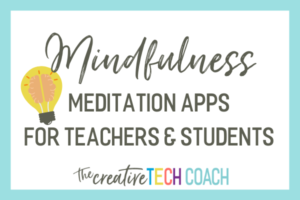Distance learning via mobile learning environments has exploded in the past few years. For instance, Liberty University’s number of online students from the 2003-04 academic year to the 2013-2014 academic year increased 740% (Bible, 2015). And while there are great advantages to mobile learning, it proposes some challenges for educators, one being assessments.
Many courses here at Liberty require a variety of assignments that are used for assessment purposes: discussion board, papers or projects, and even online quizzes. However, given the constructivist methodology that most online learning environments use, multiple choice quizzes are not an ideal method of assessment, since they are only assessing basic understanding and do not always require higher-order thinking. Further, opportunities for authentic formative assessments must be included in any instructional design.
Hung, Hwang, Lin, Wu, and Su (2013) promote a contructivist model of instruction with their mobile field-based inquiry. They suggest an alternative to multiple-choice assessments with their “mobile learning and assessment design model” (Hung et al., 2013). Their “three-layer learning framework” helps “effectively clarify the content knowledge, focus on the learning targets, and facilitate [students’] inquiry progress” (Hung et al., 2013, p. 195). Hung et al. (2013) summarize their framework as follows:
The first layer uses multiple choice items and online feedback to clarify the students’ basic knowledge. The second layer provides short response items to help students focus on crucial observations. . . . The third layer suggests that students answer their own questions and provide relational descriptions . . . to integrate and extend their conceptual knowledge. (p. 196)
Hwang and Chang (2011), who also point out the authentic learning experiences an online learning environment provides, acknowledge using formative assessments to gauge student learning and to help identify when students may need scaffolding to accomplish assignments (Hwang & Chang, 2011). They suggest their intuitive Formative Assessment-based Mobile Learning model works like a classroom-based formative assessment in that it “provides feedback and support during instruction” (Hwang & Chang, 2011, p. 1024).
References
Bible, M. (2015, Summer). Is Liberty University the future of higher education?. Liberty Journal, 2015(2).
Hung, P.-H., Hwang, G.-J., Lin, Y.-F., Wu, T.-H., & Su, I.-H. (2013). Seamless connection between learning and assessmen- Applying progressive learning tasks in mobile ecology inquiry. Educational Technology & Society, 16 (1), 194–205. Retrieved from: http://search.proquest.com.ezproxy.liberty.edu:2048/docview/1287028452?pq-origsite=summon
Hwang, G.-J.., & Chang, H.-F. (2011). A formative assessment-based mobile learning approach to improving the learning attitudes and achievements of students. Computers & Education, 56(4), 1023-1031. Retrieved from: http://dx.doi.org/10.1016/j.compedu.2010.12.002




3 Responses
HI Ashley,
Good work on this! I actually listened to your 638 blog post and it is really good! You address assessment more deeply in that response than you do here. 🙂
Anyway, knowing what you know now, how are you going to change your approach to assessment in the online environment?
Mrs. Fort,
Thank you for your post, I found it quite informative. Being a High School teacher, my concept of assessments probably differs considerably from yours. Still, I will proffer some of my ideas on how to address online assessments, but I would like to know some of your solutions as well. I work at a project based charter school, so assessment outside of the traditional paradigm of quizzes and tests is an expectation I must meet. One of my professors in college once told me you never truly understand something till you teach it. I have taken these words to heart, and for final assessments in my classes I often make student create a lesson or presentation. In our own classes I see the ISD as being one of these assessments. We are applying much of what we have already learned to create a lesson or presentation. This demonstrates our ability to communicate what we know and display a clear understanding. The evaluations I perform on my students often involve multi-step projects requiring them to demonstrate skills long before they stand in front of the class. The development process gives me the opportunity to assess their performance as the project is developed. My probability and statistics class had to did a nine-week study on five classes using the testing methods they had learned to evaluate the effectiveness of PBL in the school. This can work similarly in a distance environment, as students must take advantage of the digital tools available to communicate across the Internet. Thank you again for your post, and I hope some of my ideas may be been useful to you. I look forward to your comments in the future.
Thanks, David for your suggestions. Yes, our students' ages and learning environments may be different, but great ideas can often be adapted no matter the age or grade-level. I have had my second grade students "teach" the class as a way of formative assessment sometimes. We have also used "expert groups" for students to research certain topics and teach the class what they've learned. Thanks for sharing!